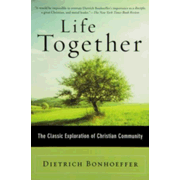
Galatians 6:1-2 (KJV)
“Brethren, if a man be overtaken in a fault, ye which are spiritual, restore such a one in the spirit of meekness; considering thyself, lest thou also be tempted. Bear ye one another’s burdens, and so fulfill the law of Christ.”
Have you ever felt the weight of someone else’s choices fall on your shoulders? Or maybe you’ve watched division quietly creep into the church because of pride, distrust, or gossip. As believers, we don’t live in a vacuum. Whether we recognize it or not, our integrity—our walk with God—is deeply affected by the people around us. And just as important, our actions affect others, too.
In a world that prizes independence, God calls us to interdependence. He designed the church to function as a body—many members, each with a role, united in purpose and love. But that unity doesn’t come automatically. It takes humility, trust, and a willingness to walk with one another, especially when things get hard.
Let’s take a deeper look at how we’re affected by others and how we can walk in integrity within the body of Christ.
1️⃣ The Church Is a Community, Not a Hiding Place
Some Christians treat fellowship like a risk—not a gift. They keep their distance, avoid accountability, and hide their flaws behind a polished smile. But Scripture calls us to walk in the light with one another.
When Paul writes in Galatians 6:1-2 about restoring someone overtaken in a fault, he’s not just giving advice. He’s laying down a foundation for how community should work:
- Restore gently. Not with judgment or superiority, but with meekness.
- Stay humble. Consider yourself. You’re not above temptation.
- Share the load. Bear one another’s burdens—this is how we fulfill Christ’s law of love.
Avoiding each other when things go wrong only fosters isolation and shame. We need safe, trusting relationships that reflect the love of Christ. That kind of trust takes work—and humility.
2️⃣ Trust Requires Humility

1 Corinthians 13:7 reminds us what love really looks like:
“Beareth all things, believeth all things, hopeth all things, endureth all things.”
Real love in the church means believing the best about each other, even when we’re at our worst. But that’s only possible when we’re willing to let go of pride.
Too often, pride shows up in subtle ways:
- Refusing correction because it “offends” us.
- Only listening to those within our circle or denomination.
- Dismissing another believer’s insight because it challenges our own view.
That’s not discernment. That’s narcissism.
No one has all the answers. No one has fully figured out God, the Bible, or life. That’s why we need each other. Pride isolates. But humility invites healing and growth.
3️⃣ Jesus Modeled Humility—and So Should We
If anyone had the right to be proud, it was Jesus. Yet, He “made Himself of no reputation” (Philippians 2:7) and humbled Himself to the point of death on a cross. Jesus didn’t lead with superiority. He led with servanthood.
And He calls us to follow in His footsteps.
So why do we, as Christians, allow pride to keep us from listening to one another? Why are we so quick to criticize and slow to forgive? Why do we take cheap shots at those who interpret a passage differently or worship in another style?
Shame on us!
When we divide, we do more than hurt feelings—we grieve the Spirit. Jesus prayed for unity among His followers (John 17:21). Not uniformity, but unity. The church isn’t meant to be a collection of competing tribes. We’re one body in Christ.
4️⃣ We Are One Body—Let’s Act Like It

1 Corinthians 12:12 reminds us:
“For as the body is one, and hath many members… so also is Christ.”
The church is strongest when every member functions together. That means we:
- Celebrate others’ victories. (Romans 12:15: “Rejoice with them that do rejoice…”)
- Mourn with others in loss. (“…and weep with them that weep.”)
- Refuse to isolate. We don’t pull away when others struggle.
- Avoid spiritual elitism. We don’t act like we’re above others.
You don’t get to say, “That’s not my problem,” when a brother or sister is struggling. The burden of sin, grief, confusion, or even doubt is shared in the body. And the restoration process doesn’t just involve the fallen—it involves the entire community.
5️⃣ Don’t Be Complicit—But Don’t Be Cold
Now, let’s be clear. Bearing one another’s burdens doesn’t mean condoning sin. We’re called to speak the truth, but always in love. We can’t turn a blind eye when someone is walking in rebellion. But we also can’t cut them off at the first sign of weakness.
It’s a delicate balance:
- Don’t be complicit in sin by staying silent or pretending everything’s fine.
- But also, don’t be cold by rejecting or condemning those who stumble.
Spiritual maturity is shown not just in knowledge, but in how we treat others, especially when they’ve fallen.
Application Questions: Reflect and Respond
Take a few moments to reflect on your relationships within the church.
- How humble are you before other believers?
- Do you invite feedback and correction, or resist it?
- Are your relationships based on trust or fear?
- Do you contribute to unity or division in your church family?
God sees our hearts. And He longs for a church marked by grace, humility, and togetherness.
Conclusion: Choose Integrity Through Community
Living with integrity isn’t just about personal morality. It’s about how we relate to others in the body of Christ. We are not isolated believers walking separate paths. We’re a family. A team. A body.
Let’s stop hiding. Stop judging. Stop competing.
Let’s start listening. Start restoring. Start bearing one another’s burdens.
That’s what Jesus did. And that’s how we fulfill the law of Christ.
Call to Action: Walk in Unity Today
Ask the Lord to show you how your walk affects others. Reach out to someone who may be struggling. Be willing to listen—even if it’s uncomfortable. Be quick to forgive. Slow to speak. Ready to love.
Let’s build a church that reflects the heart of Jesus—humble, honest, and united.
“By this shall all men know that ye are my disciples, if ye have love one to another.”
— John 13:35 (KJV)
Affiliate Disclaimer
This post contains affiliate links. If you click on one of the links and make a purchase, I may receive a small commission at no extra cost to you. I only recommend products I truly believe in and think will be beneficial to my readers. Thank you for supporting Biblical Christianity!
? Recommended Resource for Deeper Reflection
If this message stirred your heart, you might find Life Together by Dietrich Bonhoeffer especially meaningful. It’s a beautiful and challenging book on what true Christian community looks like—centered on humility, mutual care, and Christlike love. I highly recommend it for personal devotion or small group study.

|
Life Together: The Classic Exploration of Christian Community
By Dietrich Bonhoeffer After his martyrdom at the hands of the Gestapo in 1945, Dietrich Bonhoeffer continued his witness in the hearts of Christians around the world. In his book Life Together, we learn of Pastor Bonhoeffer’s experience within Christian community. This story of a unique fellowship in an underground seminary during the Nazi years reads like one of Paul’s letters. It offers practical advice on sustaining life in Christ-centered community—covering prayer, worship, work, and service in simple, biblical terms. |
